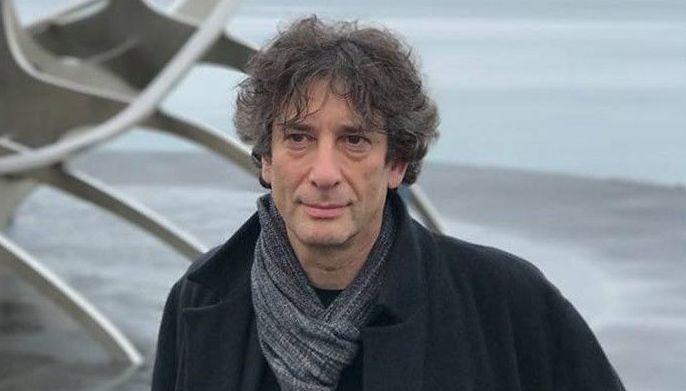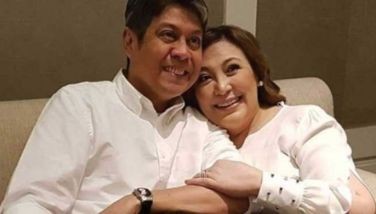Da King and I
MANILA, Philippines - Today, Aug. 20, Fernando Poe Jr. would have been 73 and in all likelihood, he should have been president of the Philippines in 2005.
As recent revelations show from the very perpetuators of the shenanigan, FPJ was most likely robbed of the presidency.
It is no small comfort that he was named National Artist for Film through PGMA’s Philippine Proclamation No. 1065 last May 24, 2006.
For the record, FPJ’s real name is Ronald Allan Poe y Kelley-Gatbonton. He was born on Aug. 20, 1939 in Manila of Pangasinan, Spanish and Irish American descents. He was the son of actor-producer-director Fernando Poe Sr. of San Carlos City, Pangasinan (1916 to 1951) and Bessie Gatbonton Kelley (1918 to 1999) of Candaba, Pampanga.
How do I remember FPJ who I last interviewed in 1994 in a Greenhills resto in San Juan?
On this his 73rd birthday, I’d like to freeze that memorable day in 1994 when we had lunch in that San Juan restaurant owned by the late Larry Cruz.
He seldom gave interviews, I was told, but this time he was persuaded.
FPJ was midway into his salad and I was finishing a bowl of what looked like mushroom soup when he started the conservation by recalling filmmaking in the old days.
Those were the days when a director could finish a film in less than a month. That was easy because all pre-production details had been ironed out before the start of actual shooting. Those were the days, too, when movie stars would crown a beauty queen or do a special number in a town plaza — for a song.
Times had changed indeed, FPJ had said. On that year we met, movie stars had become part of a multimillion-peso industry and professionalism had gone a long way. Now there is a contract for every movie and a stipulated fee for every out-of-town appearance.
 Fernando Poe Jr. as young man and (below) as presidential aspirant
Fernando Poe Jr. as young man and (below) as presidential aspirant There was a time, too, during FPJ’s time when Filipino films were shown in only one or two theaters (Life and Dalisay) and snubbed by Avenue Theater which showed mostly Western films. “We fought hard to make Filipino films acceptable in more theaters and we won,” FPJ recalled. “But now producers are in danger of losing out to foreign films flooding the country — mind you, they have a worldwide market — the Filipino producer can only take so much.”
He went on to say that when a film grosses P30M during his time, for example, at least P7M will go to taxes. Producers have only the tax rebates offered by the newly-reconstituted Film Ratings Board to give them relief. “If you get an A-rating, you get a 100 percent tax rebate and with a B-rating, you get 50 percent. So that will probably serve as an incentive to produce better movies. But I am fighting for a setup where, if you get those rebates, those involved in the making of the movie, apart from the producer — like the storyteller, the scriptwriter, as well as the association to which they belong — will also get part of the percentage.”
Still reflecting on the past, FPJ admitted missing people like actor-director Efren Reyes Sr., directors Gerry de Leon whom he still refers to as Manong, Lamberto Avellana and even latter generation filmmakers like Lino Brocka.
“They all had different styles and they all had something unique to offer,” FPJ had pointed out. “I think they represent a certain era in filmmaking when we were making solid headway in cinema. When they faded from the film horizon, parang maraming nawala sa movie industry.”
But Da King was not one to pontificate. He knew the ups and downs of the film industry from the point of view of one who had to struggle both as an actor and as a producer.
FPJ started as a bit player and when his acting career established, he went into producing, which wasn’t easy even for name actors like himself. “I know how it was to run out of working capital,” he had said. “I’ve been through that myself.”
Scriptwriter Baby Nebrida believed FPJ represented all symbols of survival and success in the Filipino film industry. “FPJ was a producer foremost and he was also an actor. He was a bit player before he was a full-blown actor and he also directed. So he was Everyman of the industry. I thought he differed a lot from others because his sensitivity was people-oriented. Let’s face it, the orientation in the movie industry was in the beginning still feudalistic — producers are king and the rest are just workers or the equivalent of serfs. FPJ didn’t belong to that category. He’d be the first to raise hell if you so much as downgrade the small workers of the industry.”
The late actor-singer Gamaliel Viray confirmed Nebrida’s observation. “If FPJ heard you shouting or cursing the crew members for no reason at all, you are in for trouble because he treated superstars and bit players and plain extras on the same level,” Viray recalled.
His feel for the common folk apparently colored FPJ’s choices of movie roles. A case in point was when he did the story of NBI director Epimaco Velasco. When Da King learned from Nebrida that Velasco had been working student and started as a janitor at the NBI offices, he accepted the project with no questions asked.
FPJ himself finished primary education in 1953 at San Beda College. For high school, he went to San Sebastian College, Mapua Institute of Technology, and University of the East. After the death of his father, he dropped out of the University of the East in his sophomore year in order to work to support his family. He worked odd jobs, as a cleaner, a messenger boy and a stuntman, before becoming a full-time actor.
To prepare himself for that movie Epimaco Velasco, Mr. NBI (The True Story), FPJ holed up in the NBI offices for a week and observed the real Velasco firsthand. The action star had long ago given up portraying character by imitating their gestures, mannerisms and such. “In the first place, you couldn’t copy the original and no matter how much you try, you wouldn’t as striking as the original character,” he explained then. “So in portraying real people, I concentrated more on projecting the inner character. In the case Epimaco Velasco, the only thing he copied verbally was his favorite cussword, which he thought was characteristic of the man.
In his movies, FPJ had been identified with guns as he defended the helpless and wiped out the villains in the process.
In person as I found out in this last interview, the man was wary of gun-toting people and in fact did not have his own coterie of heavily-armed alalay. The company he kept were long-time friends who bet on race horses and probably the kind who’d probably run away at the first sign of trouble.
“I disliked armed bodyguards for many reasons,” FPJ said. “First, those bodyguards were inclined to show off and you couldn’t control them all the time. I kind of have a distaste for people whose waistlines bulged with guns. Iyon bang dinaanan sa bukol ng bewang. Talagang hindi maganda ang dating.”
Indirectly asked about young actors who literally surround themselves with a mini-private army, he said he was inclined to commiserate with them rather than berate them.
“When you are in your 20s, you could get restless and would be prone to do a lot of things. Being temperamental and impulsive is part of being young, I would be dishonest if I said I did not go through that phase myself. When I used to go drinking with friends in places like the bars in 3rd Avenue in Grace Park in my early 20s, I used to carry a gun, especially during the time of the Big Four gang. Those were different times
His leading ladies often singled him out as the epitome of a real man. Did he carry a particular brand of machohood on top of playing lady-killer in most of his films?
One was inclined to ask: What was his idea of a real man?
He was floored by the question. There was a long pause, after which all he could say was, “Ang hirap yatang sagutin’ yan.”
FPJ was similarly stumped when asked to describe the most distinct character trait he was known for. When told that most of his leading ladies and male co-stars regard him as a gentleman and the very figure of substantial manhood, he laughed and said in jest:
“Baka nagpapalusot lang ang mga iyan.”
As the undaunted hero of countless Filipino action movies, FPJ could face a hail of bullets without so much as blinking an eye. Off-camera, however, even the man acknowledged he wasn’t invincible.
What he enjoyed about his life at that time wasn’t so much the financial stability as the fact that he didn’t have to look over his shoulder all the time. “I could tell you straight in the eye that I had no enemies, at least not one that I know of,” he said. “What is tragic in people is if they enjoy relative prosperity and yet are constantly on the lookout for people who might do them harm. Iyon bang laging nakatingin sa batok at baka may bumaril o sumaksak sa kanila.”
Not that he had no fear of sudden death. He would not hesitate to mix with ordinary folk in whatever setting, he said, but he would be overly concerned if he were face to face with a drug-crazed toughie. “Mahirap makatapat ng durog,” he said.
Thoughts of the after-life had likewise seized him even before he died.
I remember his monologue thus:
“At times when I think of death, I ask myself: What is it like being lifeless? What is in store for people who pass away? No, I am not afraid of plane rides. But just like other passengers, I worry: What if something happens? During one campaign sortie, Erap and I were in this helicopter and we ran into bad weather. We exchanged worried looks and to lighten the situation, I told Erap, ‘If we crash and something happens to us, I am sure you’ll get the lead billing in the papers because you are the vice presidential aspirant.’ Erap got back to me, saying, ‘Huwag naman sana akong mauna. Kung ako ang mauna, lalakarin pa kita kay San Pedro.’
“But seriously, it’s better to prepare for any eventuality. It’s kind of morbid buying all kinds of insurance and memorial plans, but when it’s time to go, you should at least spare your loved ones the trouble of worrying about expenses for your burial. Of course, we all hope that we will have a beautiful exit.”
Talking like that, FPJ sounded exactly like the average moviegoer who had been patronizing his movies these past four decades. More than just the right choice of films, Da King’s staying power could still be traced to his common touch, the sheer humanity that afflicts us all — the fears of a sudden and ugly death, a concern for his loved ones and a capacity for deep and abiding friendship.
- Latest
- Trending

































